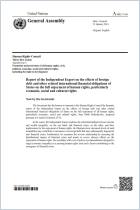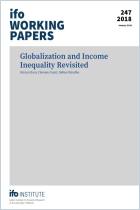Join getAbstract to access the summary!

Join getAbstract to access the summary!
Max Lawson
It’s Time to Demolish the Myth of Trickle-Down Economics
World Economic Forum, 2016
What's inside?
The rich are getting richer, and historical evidence suggests that trickle-down economics doesn’t work.
Recommendation
The richest 1% of the world’s population now possesses more wealth than the remaining 99%. This milestone underscores the yawning chasm between the rich and the poor. Income inequality is destined to continue unless government policies and tax laws change, according to Oxfam’s Max Lawson. The evidence he presents will strengthen the arguments of those who rail against the wealth gap, and his thesis is powerful enough to win a few converts from among those who believe the issue is overblown. getAbstract recommends Lawson’s enlightening article to executives, economists and anyone interested in the worldwide impacts of the extreme wealth disparity.
Summary
About the Author
Max Lawson is head of advocacy and public policy at Oxfam Great Britain.

















Comment on this summary